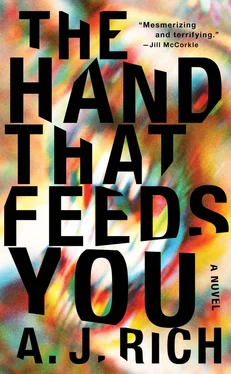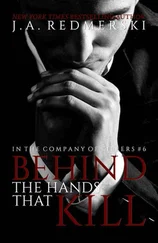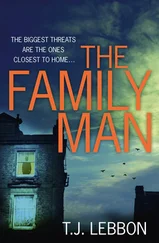“Bacon in chocolate?” Steven said.
“Maybe I spelled their last name wrong,” I said.
“My guy checked every derivation. There is no one by that name in Saint-Elzéar.”
“Maybe I got the town wrong.”
“He checked all over.”
“They have to be somewhere. Someone has to tell them their son is dead.”
“I had my guy check the town’s records for Bennett’s birth certificate. No one by his name ever lived there.”
“I didn’t ask you to check on Bennett.”
“I wasn’t checking on Bennett, I was trying to find his parents for you.”
I knew my brother better than anyone else. We’d been inseparable as kids, and fiercely protective of each other, a pattern often found in the children of a manic-depressive. When our father was depressed, he ignored Steven, and when our father was manic, he attacked him. Bipolar disease is one of the rare instances where a predator and a victim can occupy the same body at the same time. It makes for an unfair fight.
“Do you want my guy to keep looking for Bennett’s parents?” Steven asked.
“Of course I do.”
• • •
After Steven left, Jody worked on her chocolate. “My creative-writing teacher at Sarah Lawrence had the same thing happen to her. She met this English guy online and fell in love.”
“Why would your professor tell you about her love life?” I asked, though I could barely concentrate on Jody. I was stuck back at the moment when Steven had said that Bennett wasn’t born where he told me he was.
“We’re required to meet privately for a half hour a week to discuss my writing. There’s nothing to say. We both know it. Turns out the guy was really twelve years old.”
“That must happen all the time.” I reached for the bedside lamp to turn it off.
“Wait. I finally figured it out. You’re the bad version of that actress, Charlotte Rampling — the sexy-lidded eyes that change from hazel to green depending on the light, the cheekbones. It’s been driving me nuts.”
“The bad version.”
“Also the short version,” Jody said. “My sister and I say we are the bad versions of Joan Fontaine and Olivia de Havilland. We watch a lot of old movies. Your brother, on the other hand, is sort of the good version of Nic Cage.”
“I think he could go with that. I don’t know your sister, but I don’t think you’re the bad version of anyone,” I added, making nice. This time I turned off the light on my nightstand. “Sleep well.” I even turned away from Jody to underline my intention to end any conversation. But the light from the window in our door illuminated the room, enough that I could not pretend I was the only one there.
Why would you say you were born somewhere you weren’t?
Of all the lies men have told women, this one was baffling. It didn’t seem to serve a purpose I could identify. Unless he had changed his name. But the reasons people change their name — short of marriage when a woman sometimes changes her last name — are to sever ties to the past and to start over. And if he had changed his name, what else might he have changed — the story of his childhood? But he talked about his parents with such love. Was that the childhood he wished he’d had? Who were the people in the photograph? Bennett looked like the man in the photo.
I rolled over until I was facing the other bed. Jody was, if not asleep, then at least lying still. I could not get her silly game out of my head. Who was Bennett the bad version of? I thought of all the actors of yesteryear that I had watched on late-night TV, and I landed on the iconic Montgomery Clift. He had been in a serious car accident — he drove into a tree — while filming Raintree County , and though the facial plastic surgery he had required was pretty good for the fifties, his looks had a definite before and after. Bennett, I thought, was the bad version of the bad version of Montgomery Clift. As soon as I landed on this, I was ashamed — why the snarky take? All he had done was lie about where he was from.
Still no sound from Jody. The roommate I wished I had was Kathy. I would not have turned off my light and turned my back to her . We would have dissected the possibilities of this odd situation, escalating into wilder scenarios until we were both laughing. Ultimately, she would have made a case for duality — that I needed to do recon and take the risk that faith presents.
Faith had served her well. An adventurous, indomitable, and wise spirit had guided her through a life many would envy — up to a point. At twenty-eight, in her third year of med school at NYU, she was diagnosed with breast cancer, and it had already gone to the bone. She continued to attend classes and do rounds during her initial chemo and appeared on the ward with her head uncovered — no wig, no wrapped scarf. Her patients saw her bravery daily, her showing up for them when another would have capitulated.
She lived for eight years after the diagnosis. For four of those years, we shared an apartment in Vinegar Hill near the on-ramp to the Brooklyn Bridge. She died just before I met Bennett.
And now I was in a loony bin with a Sarah Lawrence student.
What would Kathy have done?
I would make a plane reservation for Montreal in the morning, use the key Bennett had given me, and find out what I could.
“I’m checking myself out this afternoon,” I told Cilla the following morning. We were sitting in her office drinking tea. I’d seen her daily since I’d been admitted, and she had promised to see me as an outpatient. I picked at the threads of my trendy ripped jeans.
“You don’t think you should stay a few more days? At least until you have a support structure in place?”
I felt that she was my support structure, she and Steven. “Steven hired a crime-scene cleaning service for my apartment.”
“You’re sure you’re ready to go home even if your apartment is clean?”
“Are there different cleaning products than the ones the rest of us use? I couldn’t even get the blood from a bloody nose out of a washcloth,” I told Cilla. “I’m not going home. I need to go to Montreal, to Bennett’s apartment to find his parents’ home number and address. I can’t go home until I face them.”
“Do you think it’s your job to tell them, not the authorities?”
“No one else could find them, not even Steven’s investigator.”
“And you think you’ll find them?”
“He was so organized. He hung his shirts and ties by color. I’m sure I can find his parents’ address somewhere in his desk. It was the neatest desk I’d ever seen.”
“So you’ve been to his apartment?”
“No, he showed me on Skype.”
We used to have dinner on Skype. We would decide on Chinese, order in the same dishes, and have dinner as though sitting across from each other. Bennett’s table had a tablecloth; I used a place mat.
“Are you prepared for what you might find?” Cilla asked.
It was a stock therapeutic question, one I had asked while interviewing inmates at Rikers. Everyone always says yes.
• • •
But first I had to see my dogs.
I took the express train all the way to East Harlem. I thought today might be the Puerto Rican Day Parade — the PR flag was flying from so many honking cars, and the traffic was so thick — but then I realized the parade was in June, and this was September. The smell of the city pound annex hit me a block away, a mixture of feces and fear. The front door was covered over in taped-on flyers urging the spaying and neutering of pets. Just inside, presiding over a waiting area filled with crying children and expressionless teenagers and beleaguered parents, were three women who looked no older than twenty. Two were on phones, which left only one of them to deal with the emotional crowd, some there to look for their lost dog, some there to give their dogs up. At this rate, it would be hours before someone would speak to me.
Читать дальше

![Корнелл Вулрич - Eyes That Watch You [= The Case of the Talking Eyes]](/books/32103/kornell-vulrich-eyes-that-watch-you-the-case-of-thumb.webp)









